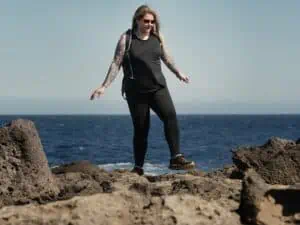This guide is part of The Wellbeing Toolkit in partnership with Shady Rays Impact, for more articles within this guide, visit the main resource hub.
About Shady Rays Impact: Shady Rays Impact is the charitable giving foundation for Shady Rays. They never wanted to settle for being a company that just sells sunglasses – they want to make a difference every day. Through research and talking directly to their fans, Shady Rays found the causes that give purpose to their work. Together, Shady Rays is helping people live healthy, courageous lives through some of their most challenging moments.So far, they’ve provided more than 25 million meals to fight hunger across America and removed millions of plastic bottles from our world’s oceans.Making an impact matters…and they’re just getting started.
Self care has never been more important than it is now. When we consider the last few years events, the amount of uncertainty, worry and upset, alongside constant world events and personal changes, the world can seem pretty heavy and difficult. It’s incredibly easy to see how we have become fixated on negative thinking and anxiety which in turn can lead to depression and even manifest as physical symptoms.
Taking our self care seriously can seem incredibly difficult, though, especially with more demands on our time than ever and many of us finding ourselves working longer hours than we ever have. There has been a lot said in recent times that our self care methods are at an all time low, and often, when we’re busy, our self care really suffers in favour of simply getting by and doing what it is we need to do.
So, what exactly can self care involve and how can we build it into our lives for a better sense of wellbeing?
Table of Contents
ToggleWhat is self care?
Simply put, self care is anything you can do that helps you feel physically and/or emotionally better. This can be as simple as taking a fifteen minute walk, stepping out into the sunshine, remembering to take your vitamins, or spending time cooking a meal that you know is going to make you feel good. Self-care of course takes time and effort, but if we don’t take our sense of wellbeing and balance seriously, even if just a few minutes every once in a while, we can get burnt out both mentally and physically. Trying to pour from an empty cup is extremely hard!
Nature based self care
If you’re here, there’s a fairly good chance that you enjoy spending time in nature, but even if you don’t, the benefits of spending time in nature can be incredible for our sense of wellbeing and self care. Connecting to nature has been proven to reduce stress and can lead to us feeling calmer. It can give us a break from difficult situations and allow us to take a step back to gain a fresh perspective. Spending some time in nature can really help you to feel more confident in yourself and have a renewed sense of focus and attention.
“Spending time outdoors is not just a luxury, it’s a necessity for our overall well-being. Spending time in wild places reduces stress and anxiety, lowers blood pressure, and even improves cognitive function. But beyond these physical benefits, time spent outdoors helps our sense of self-care, sense of self, and self-confidence. When we disconnect from the hustle and bustle of daily life and immerse ourselves in nature, we gain a deep sense of clarity and perspective. We begin to recognize our place in the world and the interconnectedness of all things. We become more attuned to our own needs and desires, and more confident in our ability to fulfil them. So next time you feel overwhelmed or disconnected, take a walk in the woods, sit by the ocean, or simply bask in the warmth of the sun. Your mind, body, and soul will thank you for it.”
— Chris Dolan, Firstdescents.org
How to take your time in nature to the next level for a better sense of wellbeing
Identify what makes you feel good
We all have things that we prefer more than others – it’s a natural part of being human. So really think about what it is you enjoy in the outdoors and what things you do that really get you enjoying those feel good hormones. It’s totally natural that you may have changed your focus too, whether you’re new to the outdoors and just finding your thing or have been doing this a long time and have discovered something new. Our tastes change, so whilst you may have started by loving climbing mountains, you might actually realise that the way you feel when you go canoeing pushes you to another level. That’s ok! It’s about doing things for you, not just for the sake of them to give you a better sense of connection to yourself and the places you spend your time.
Really connect
When you’re outdoors doing what you love, how often do you really connect with what’s around you? If you’re off climbing a mountain, do you usually just get straight out of the car and head onto the trail with your goal in mind? The next time you head out into nature, in whatever way fills you up, be conscious and mindful of what is going on around you – listen to the birds singing, a river raging, feel the sunlight on your face and really think about the different sense you’re engaging. Developing a sense of mindfulness like this can be incredibly helpful to reduce anxiety.
Remind yourself
Every time you have a good experience when you’re out in nature and you come back feeling good, try to make a note of it or take a picture – this way you’ll be able to remind yourself even when things feel tough that spending time in nature makes you feel good.
Small commitments
Of course, it can be hard to find the time to get out into nature as much as you might like but try to make time for nature wherever you can, and be realistic about what is possible for you. Also, nothing is off limits – if all you have time for in the week is to spend a few minutes looking around your garden or local park at lunch time, then so be it – a few minutes can make all the difference! It’s important not to judge what’s possible for you and work with what you can do. Look for nature wherever you are – and really take in the trees and birds and natural sounds around you, even if you live in a big city. It could even be that you can spend time in nature doing something that you already need to do – this could be as simple as getting outside to take a phone call or exercise routine.








